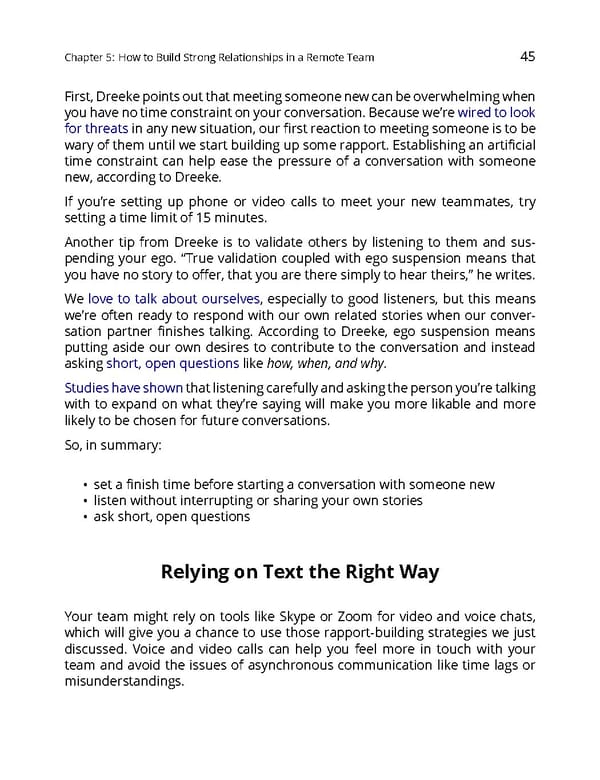Chapter5: HowtoBuildStrongRelationshipsinaRemoteTeam 45 First,Dreekepointsoutthatmeetingsomeonenewcanbeoverwhelmingwhen youhavenotimeconstraintonyourconversation.Becausewe’rewiredtolook for threats in any new situation, our first reaction to meeting someone is to be waryofthemuntilwestartbuildingupsomerapport.Establishinganartificial time constraint can help ease the pressure of a conversation with someone new,accordingtoDreeke. If you’re setting up phone or video calls to meet your new teammates, try setting a time limit of 15 minutes. Another tip from Dreeke is to validate others by listening to them and sus- pending your ego. “True validation coupled with ego suspension means that youhavenostorytooffer,thatyouaretheresimplytoheartheirs,”hewrites. Welove to talk about ourselves, especially to good listeners, but this means we’re often ready to respond with our own related stories when our conver- sation partner finishes talking. According to Dreeke, ego suspension means putting aside our own desires to contribute to the conversation and instead asking short, open questions like how, when, and why. Studieshaveshownthatlisteningcarefullyandaskingthepersonyou’retalking with to expand on what they’re saying will make you more likable and more likely to be chosen for future conversations. So, in summary: • set a finish time before starting a conversation with someone new • listen without interrupting or sharing your own stories • ask short, open questions RelyingonTexttheRightWay Your team might rely on tools like Skype or Zoom for video and voice chats, which will give you a chance to use those rapport-building strategies we just discussed. Voice and video calls can help you feel more in touch with your team and avoid the issues of asynchronous communication like time lags or misunderstandings.
 The Ultimate Guide to Remote Work Page 48 Page 50
The Ultimate Guide to Remote Work Page 48 Page 50